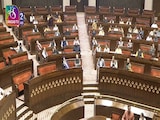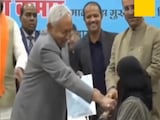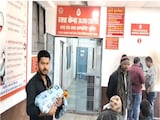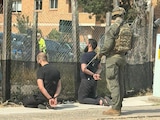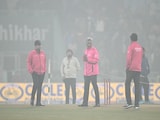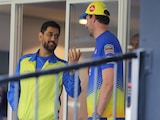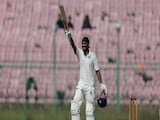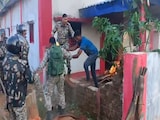Ukrainian rocket attacks on Russian trainees in the occupied territory have left hundreds dead or wounded in the last nine months. Despite repeated losses, Russian commanders continue to gather troops in exposed, vulnerable locations within the range of Ukraine's precision weapons.
On Thursday, around a dozen Russian troops disembarked from civilian vans in Zaporizhzhia Oblast, southern Ukraine, unaware they were under surveillance. Moments later, a High-Mobility Artillery Rocket System (HIMARS), stationed up to 92 km away, launched a single M30/31 rocket, a Forbes report said.
The rocket landed near the group, scattering deadly fragments and leaving at least five soldiers dead or critically injured. Ukrainian forces refrained from executing a follow-up "double-tap" strike - a tactic used earlier in Zaporizhzhia that reportedly killed dozens of survivors and first responders. Even so, the toll on Russian trainees continues to mount.
Since February, eight similar strikes across Zaporizhzhia and Donetsk Oblasts have killed hundreds of Russians. Analysts say the decision to conduct training in exposed areas close to the frontlines is a reflection of constant failings in Russian military leadership.
This vulnerability brings to light the infamous bombardments in Chornobaivka, near Kherson, where Ukrainian forces targeted Russian command posts 22 times over eight months.
"Some suggest the Russian experience at Chornobaivka and elsewhere can be explained by the Russians' inability to overcome challenges in professionalism, training, and communications," observed US Army officers in a 2023 Military Review article.
The continued exposure of trainees to deadly attacks indicates these systemic challenges remain unresolved.
Ukraine has intensified its focus on disrupting Russian command systems. Following the authorisation from the US, the UK and France to strike within Russia using Western munitions, Ukrainian forces launched a significant raid on a command post in Russia's Kursk Oblast using ten ex-British Storm Shadow cruise missiles. Reports suggest the strike may have killed a Russian general and injured a North Korean counterpart.
Such attacks, which eliminate experienced battlefield leaders, further weaken an already strained Russian command structure.
The situation could shift dramatically with the January inauguration of US President-elect Donald Trump. Trump has hinted at withdrawing US aid to Ukraine, potentially including the HIMARS systems significant to these strikes. He has also signalled a willingness to let Russia operate unchecked in Europe. If this policy change materialises, it could provide a lifeline to the struggling Russian forces.
